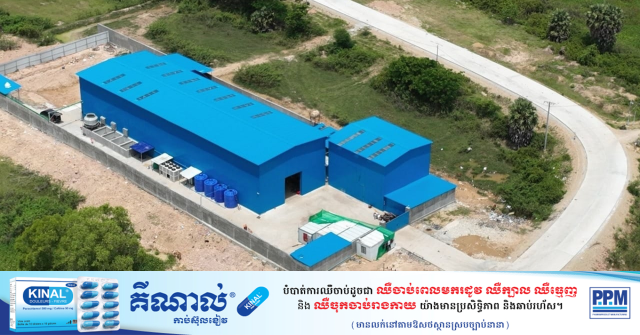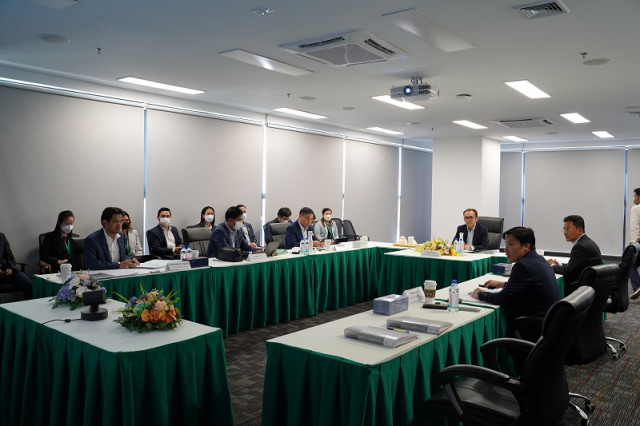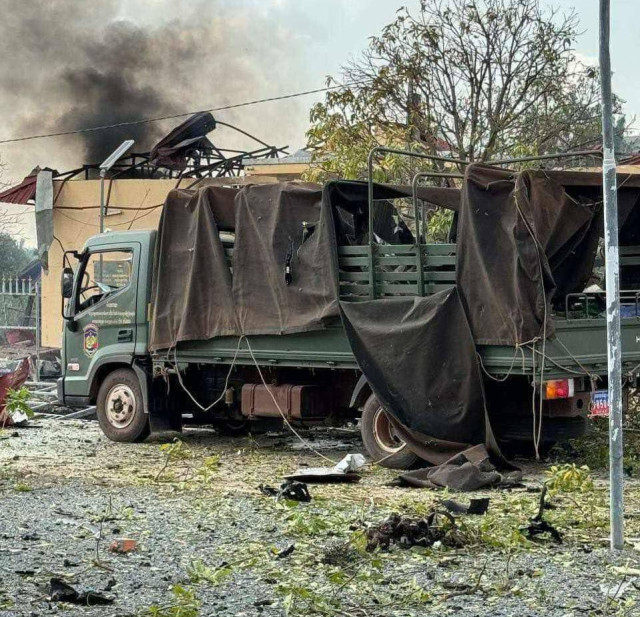Neth Savoeun Orders Anti-Drug Officials to Restrict Chemical Imports

- By Lay Sopheavotey
- October 10, 2023 9:42 PM
PHNOM PENH -- Neth Savoeun, the chairman of the National Authority for Combating Drugs (NACD), has called on all ministries and institutions at both national and sub-national levels to further combat drugs and to restrict the imports of chemical products, which are used to produce synthetical drugs.
NACD noted the increase in production, trafficking, and use of drugs within the Southeast Asian sub-region, saying that it is affecting Cambodia.
Drug use among youth has been increasing and is harming the public welfare, security, and order, said Savoeun on Oct. 9 while unveiling six principles for combatting drug use in the country.
Those include spreading educational messages among the public about the dangers of consuming drugs, developing a mechanism for chemical control, combating drug imports, preventing drug production, ceasing drug use and trafficking, and monitoring and cooperating with relevant partners.
Relevant authorities must spread prevention messages on combating drugs through traditional media (radio, TV and newspapers) and mobile phones, especially on social media, as well as on posters, billboards, and water and electricity bills.
The consequences of drug use must be integrated into school curriculums and promoted by celebrities, in private and religious sectors to reach out to young people.
The chairman called on all relevant ministries and institutions to generate mechanisms to control any chemical that can be used for producing drugs and to inspect all chemical use, storage, transfers, and trafficking.
Officials along Cambodia’s borders must increase technical equipment, scanning machines, and detection dogs to prevent drugs from entering the country. Savoeun added that officials must also pay attention to drugs being trafficked through seaports and airports.
In nine months, the Anti-Drug Department reported to have arrested 14,722 drug-related suspects, including 331 foreigners, seizing over 2.68 tonnes of illicit drugs and some 911 kilograms of ingredients. Most of the seized drugs were ketamine, heroin, ecstasy, cocaine, crystal methamphetamine, methamphetamine pills, and cathinone.
The surge of people arrested for drug offenses is in line with the production of illicit substances that has surged in the Golden Triangle, a region at the three borders between Thailand, Laos and Myanmar, renowned for being a drug production hotspot. While opium has been produced there for centuries, recent years saw a spike in the production of synthetical drugs, that rely on imports of chemical products to be manufactured.
The NACD chairman added that the ministries or institutions in charge of inspecting storage or production chains must update and follow up closely with the situation to avoid any hidden crimes related to drug use and trafficking around the areas.
At the same time, provincial governors must inspect, monitor, and track down suspicious locations, particularly rural farms located nearby forests, Savoeun said, adding that the capital-provincial Administrative Unity Commands must eliminate drug use and trafficking within the local community in clubs, condos, bars, KTVs, and guesthouses, and must apply the safe village-commune-district policy.
NACD Secretariat must organize working groups to inspect and cooperate with relevant ministries, institutions, and units closely on the combating operations, Savoeun concluded.
Meng Seavmey contributed to the story.















